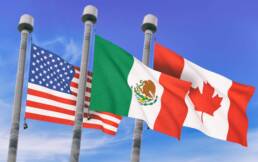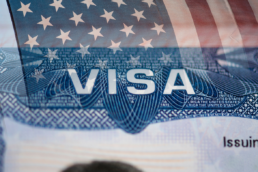The United States, Canada and Mexico continue to negotiate the North American Free Trade Agreement (NAFTA), but the divide between each nation’s delegations on major treaty issues does not appear to be shrinking. In fact, many experts are starting to believe that the parties are too far apart to ever reach a deal.
The American delegation, including U.S. Trade Representative Robert Lighthizer, recently traveled to Montreal to participate in the sixth round of NAFTA talks. Officials had hoped to bridge large gaps that continue to stand in the way of forging a compromise, but the latest round of meetings fell short of accomplishing that. Montreal was supposed to be the last time the three countries met to discuss terms but two more have since been announced, as negotiators plan to work out several sticking points and “poison pill” proposals put forth by the U.S. that threaten the treaty’s future.
The President has repeatedly criticized the trade agreement as a bad deal for the U.S., the U.S. economy and U.S. workers. He has even threatened to withdraw from the pact completely if Canada and Mexico are unwilling to agree to a deal more favorable to the U.S. So, what exactly does each country want out of NAFTA? For starters, all three nations agree that the treaty needs to be modernized. A lot has changed since NAFTA came into effect in 1994, and modernizing the deal would serve to benefit everyone.
For Canada and Mexico, they want to keep the free-trade spirit of the treaty intact. Both countries would like to see the flow of goods and services streamlined and the labor and environment provisions of the deal strengthened. On the other hand, the U.S. wants to restrict trade through a series of measures, which are now being referred to as “poison pills” thanks to their potential in derailing the negotiations. The Trump administration wants to include higher quotas on the percentage of automobile parts manufactured in the U.S., a sunset clause, and elimination of the dispute resolution process currently included in NAFTA that allows companies to take their complaints to the World Trade Organization.
Canada has made it clear that Trump’s terms are unacceptable, but the President continues to push negotiations by threatening each country with U.S. withdrawal. At this point, the future of NAFTA remains up in the air. If the U.S. decides to opt-out, it could have immediate ramifications on the U.S. economy, U.S. immigration and especially U.S. workers that rely on cross-border commerce.
Berardi Immigration Law will continue to closely monitor the NAFTA negotiations. Be sure to subscribe to our blog for the latest updates! If you are interested in applying for a visa under NAFTA, please contact our office to setup a consultation with one of our attorneys today!
Ready to have Berardi on your side?
Whether you’re a business looking to hire or a professional hoping to relocate, immigration law can be complicated. But you don’t have to do it alone. Put our experience to work for you.



